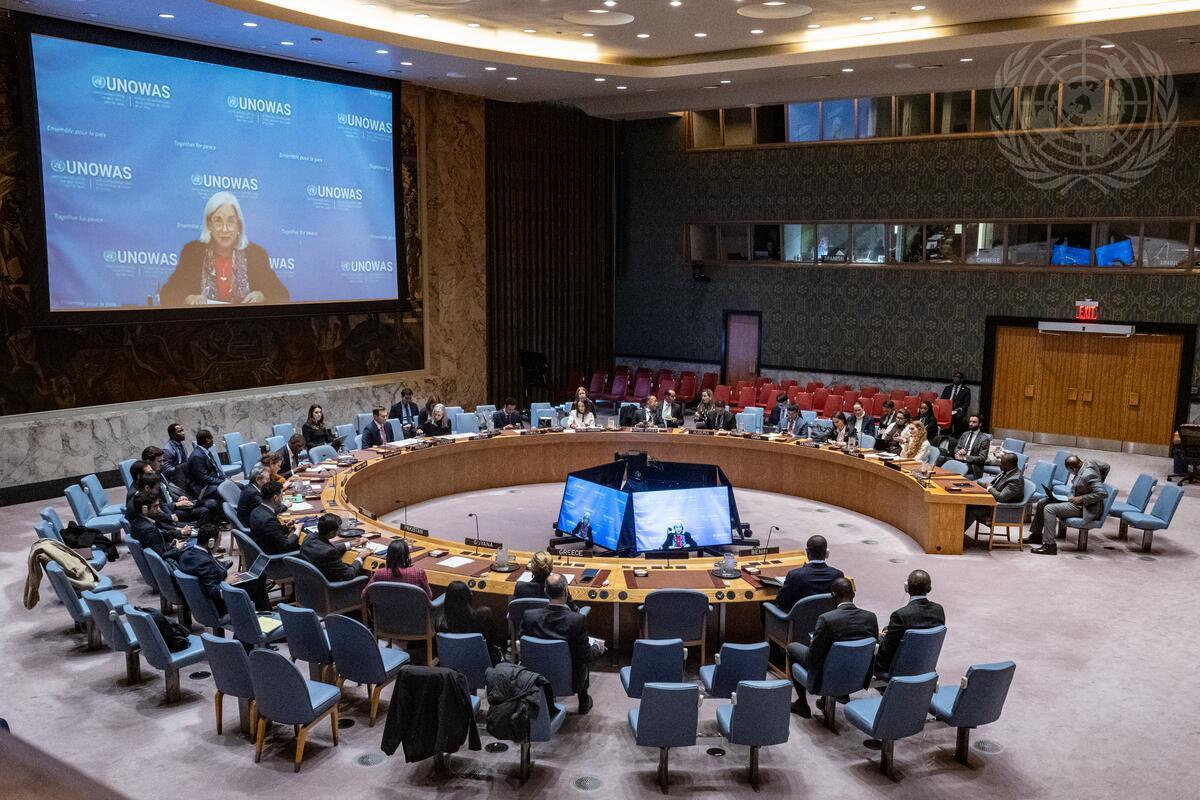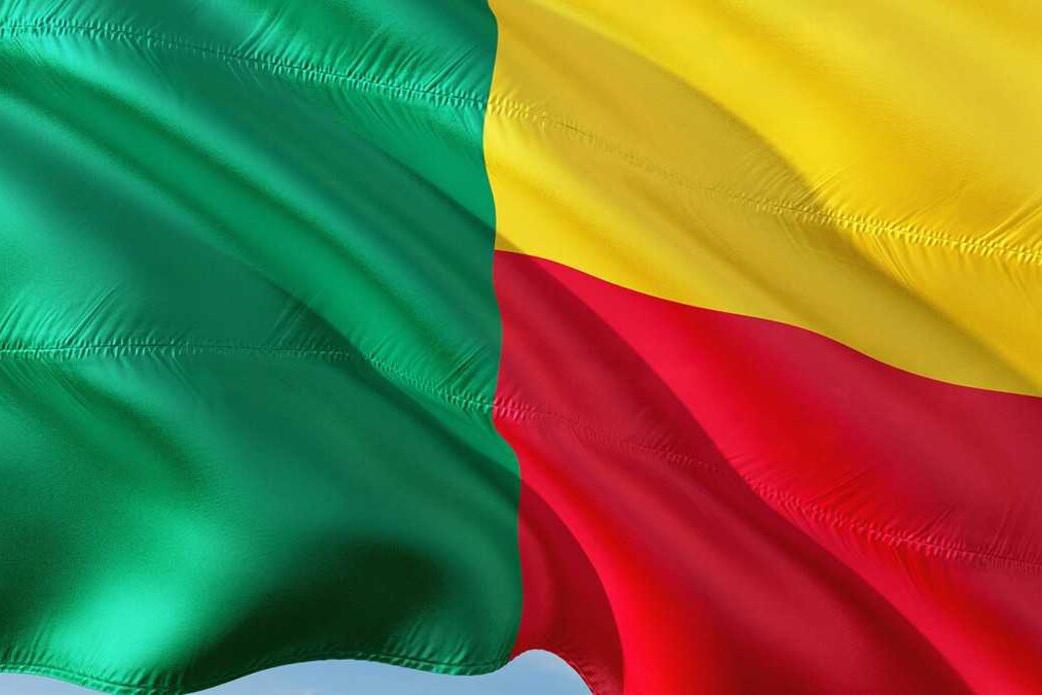Agathe Telou is the Gender Advisor at UNOWAS. She talks about her role and also about her perspectives as a woman and a mother to advance the participation of women and youth in decision-making processes in West Africa and the Sahel. Interview
You are the gender advisor at UNOWAS since 2012. what does your day-to-day work consist of?
As Gender Adviser, my role is to ensure the institutionalization of gender within the United Nations Office for West Africa and the Sahel (UNOWAS) while supporting its leadership in its decisions and actions related to the implementation of the office’s mandate.
Concretely, my work covered four components: First, advising the Head of mission, the management and heads of sections on ways and means of integrating gender in the conduct of their activities, and guiding them in the implementation of the United Nations Security Council Resolutions 1325 (2000) and subsequent Resolutions on women, peace and security.
I ensure the capacity building of colleagues on gender issues and support all sections to ensure the integration of a gender perspective in the implementation of their activities
However, given the cross-cutting nature of gender, I develop tools and guidelines for the entire mission: I ensure the capacity building of colleagues on gender issues and support all sections to ensure the integration of a gender perspective in the implementation of their activities. This ranges from the good offices missions of the Special Representative to those of the entire mission in the area of preventive diplomacy, as well as accompanying countries in the context of elections, mediation, the prevention of violent extremism and the management of various conflicts.
Secondly, my role is also to promote and facilitate the implementation, by States and Governments, of the United Nations Security Council Resolutions relating to women, peace and security. At this level, we have developed close collaboration and partnership with regional organizations, particularly ECOWAS, the Mano River Union and the G5 Sahel, as well as with United Nations entities and other stakeholders, to pool resources for better coordination of actions aimed at avoiding the dispersion of our energies and the duplication of our interventions. In the same vein, in April 2009, we jointly set up a multi-stakeholder working group represented in 17 countries, which we are co-coordinating with UN Women.
Thirdly, I collect and assess data and information on the implementation of the Resolutions in the region with a view to contributing to the UN Secretary-General’s report on the implementation of the Security Council Resolutions 1325 (2000) and subsequent.
Finally, my fourth area of action, since the adoption in 2015 by the UN Security Council of Resolution 2250 (2015) on youth, peace and security, I am also in charge of the programme for the involvement of young women and men in peace and security processes in the 17 countries of West Africa and the Sahel.
Based on your experience, do you think that women and youth are playing their full role in the development of the sub-region?
Women and young people are an essential link for any development policy and for the establishment of sustainable peace.
According to statistics, women make up a little more than half of the world’s total population and nearly 60% of the active population. In addition, more than a third of them are heads of households, but paradoxically, they are the ones who benefit least from the economic benefits and many of them live below the poverty line in the developing world.
As mother of an average of four children, women are involved in domestic work, various other income-generating activities
As mother of an average of four children, women are involved in domestic work, various other income-generating activities, but also in political life and increasingly in the management of community and national affairs. Women in both rural and urban areas are unquestionably important economic agents and are present in all economic sectors, especially in the informal economy.
In rural areas, women are not only responsible for the production process, especially for food crops where they are involved in food processing and conservation, but are also strongly involved in the health sphere through their role in health care such as childbirth or environmental hygiene, water supply, improvement of housing and family nutrition, and processing and marketing of harvested products. Sahelian women play an undeniable role in the fight against desertification. They are at the origin of several pioneering activities in the field of environmental protection.
In many cities, women are increasingly playing an important economic role and contribute to household income, far beyond simply supplementing small daily expenses.
Women create or become active in groups, associations and networks through which they develop and implement various development activities. They act as bridges of peace and as educators while facilitating communication and negotiations.
Their drive to participate in decision-making is evident today in their brilliant rise to strategic decision-making positions.
Young people are vectors of change. Energetic and much more oriented towards creative innovation, they contribute enormously to the economy of their countries through their enterprises and their participation in the development and peace-building process. This posture has justified the appointment of a special envoy of the United Nations Secretary General for youth and the development of strategies and programmes that put them at the heart of the action.
Initiatives based on the principles of inclusion with an effective consideration of the gender dimension mark their difference by achieving the expected results. However, solutions to cultural barriers and limited access to financial and production resources, as well as improved consideration of the specific needs of women and girls, could further boost the role of young people and women in the development of the sub-region, involvement of young women and men in peace and security processes in the 17 countries of West Africa and the Sahel.
The United Nations and other partners, such as ECOWAS, work closely together on gender issues with a shared vision on the normative framework
What is your assessment of the contribution of the regional partnership - particularly with ECOWAS - in advancing the gender issue?
The United Nations and other partners, such as ECOWAS, work closely together on gender issues with a shared vision on the normative framework, the mobilization of means and capacity building of States but also women and youth organizations and any other actor in the service of gender equity and equality in general, and the implementation of the «Women, Peace and Security» and «Youth, Peace and Security» agendas in particular.
The work done by ECOWAS in establishing mechanisms, structures, frameworks, policies and strategies to address gender issues and the promotion of women and youth is an example to be followed.
Such structuring facilitates collaboration and enables political and strategic decisions to be placed at the level of the Council of Ministers to which partners, including the United Nations, are invited. The operational and technical level coming upstream to prepare the ministerial meeting, coherence and relevance in the interventions are naturally at the rendez-vous.
Regarding the other regional organizations, such as the Mano River Union and the G5 Sahel, each also has a unit or department responsible for gender issues. All of them have facilitated the establishment of networks of women and young people working on the themes of gender, women, youth, peace and security in their areas of coverage. And, within the framework of the sub-regional partnership for the follow-up and implementation of United Nations Security Council Resolutions 1325 (2000) and following, under the coordination of UNOWAS and UN WOMEN, all these organizations interact with civil society organizations, the academic world, training centers, United Nations entities in the region, within the working group, Women, Youth, Peace and Security in West Africa and the Sahel; this multi-actor platform is a great achievement of the sub-region and is recognized at the international level.
What advice could you give to the governments of the sub-region to achieve the full participation of women?
25 years after the Beijing Conference with its action plan and 20 years of implementation of United Nations Security Council Resolutions 1325 (2000) and following, I would give four pieces of advice to the governments of the sub-region:
First, women and youth should be placed at the heart of their actions, taking into consideration their needs and concerns. Secondly, the States of the region have made great efforts and demonstrated their willingness to reduce inequalities and discrimination, notably through the adoption of laws and other provisions to protect women and girls and/or promote their full political participation and in the peace and development processes of their countries. The next step is to act through the effective implementation of the laws and provisions voted or adopted. The governments of the sub-region must equip themselves with the means and take measures (including implementing decrees or orders, and in some cases, budget allocation) to enforce the laws passed. Some are already on the way, and we encourage them to do more.
In addition, several high-level community, local and national women mediators have been trained in all the countries of the sub-region. ECOWAS, other regional organizations, UN WOMEN and UNOWAS, together with other partners, accompanied and facilitated this process which led to the establishment of networks of women mediators including FEMWISE West Africa. We invite the Governments to involve these women mediators in all the processes of conflict analysis and management, as well as in the processes of negotiation, mediation and construction of sustainable peace in the countries and in the sub-region.
Finally, Governments should allocate funds for gender programmers, the promotion of women and youth, including a national budget allocation to the National Action Plan for the implementation of UN Security Council Resolutions 1325 (2000) and following to ensure the protection of women and girls and promote their full political participation, in the prevention and management of conflicts, as well as in the peace and security processes of their countries.
Governments in the sub-region can only achieve the expected results for the achievement of sustainable development goals 5 and 16 (relating to gender equality and peace and security) through more concerted and inclusive actions, respect for gender equality principles, the empowerment of women and youth, and the establishment of an enabling environment for their participation, influence and leadership.
This article is published in the UNOWAS Magazine N12 -> Download here






